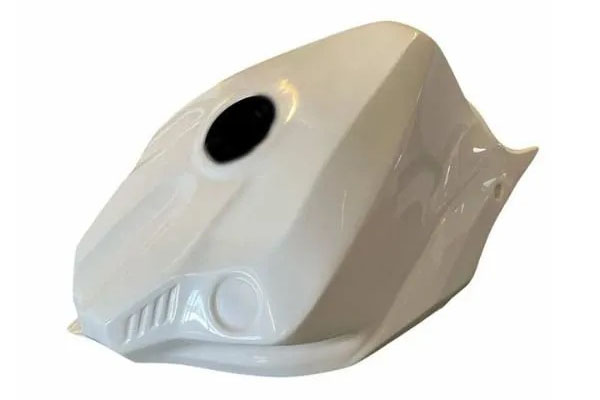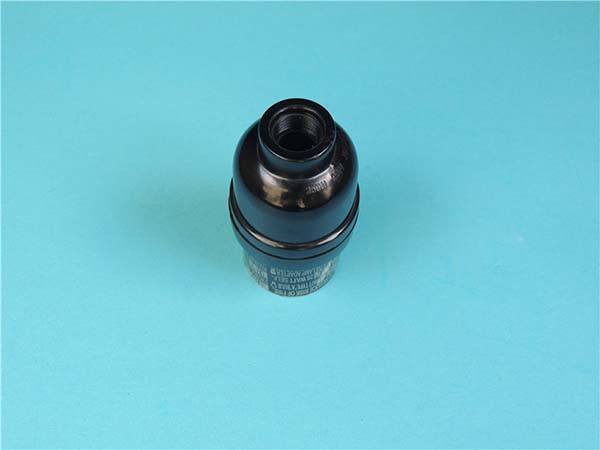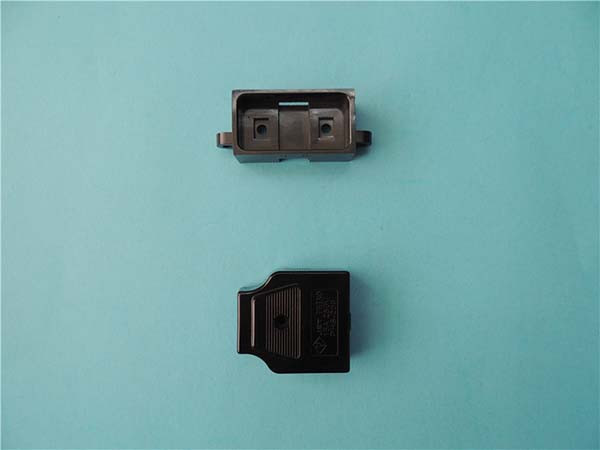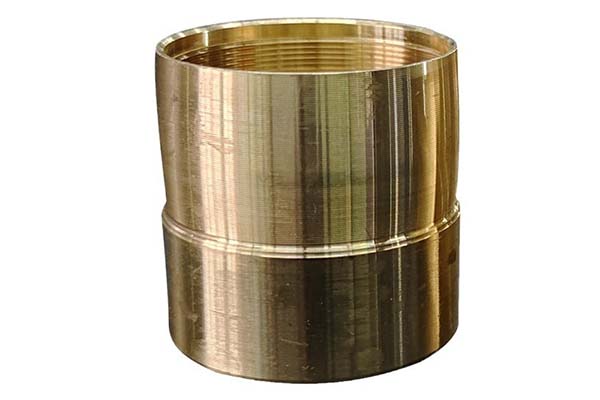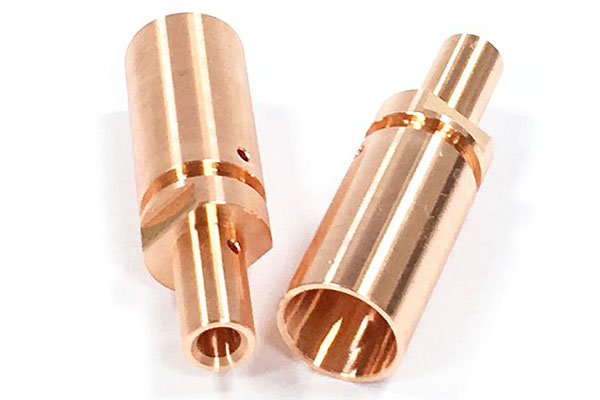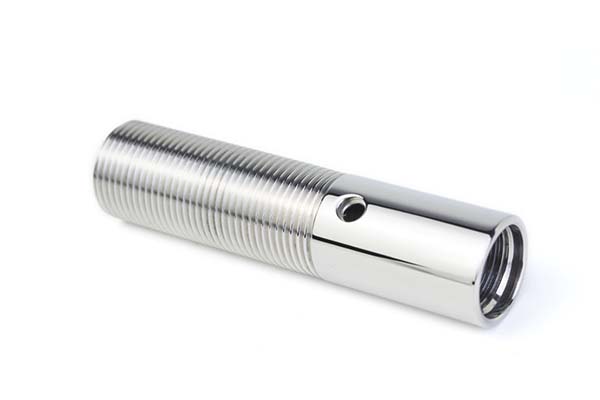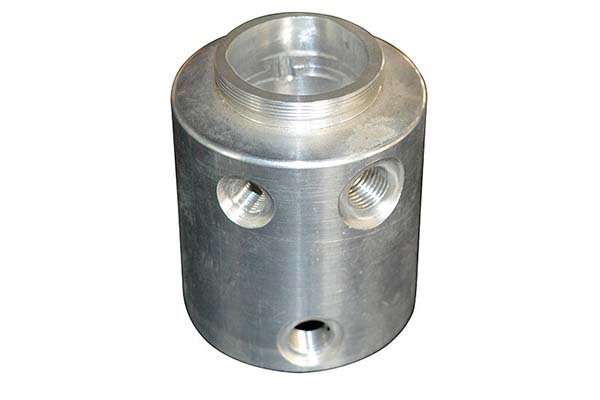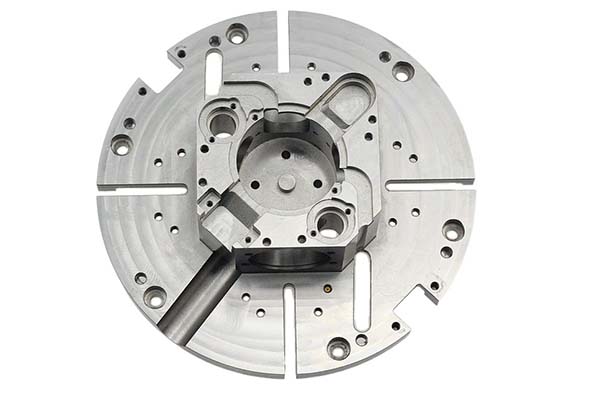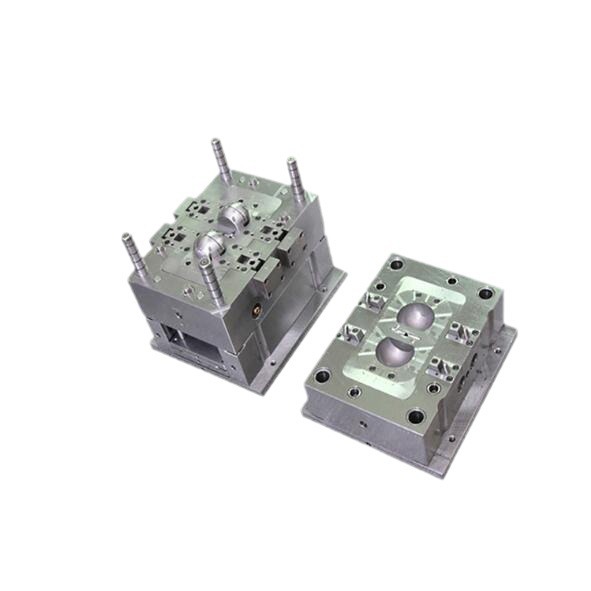Introduction
Definition and Significance of Precision Machining
Precision machining, a high - accuracy mechanical processing process, is crucial for manufacturing intricate parts and components. It involves the use of advanced equipment and techniques to achieve exact dimensions, shapes, and surface qualities. In modern manufacturing, precision machining serves as the bedrock for producing high - quality products across a spectrum of industries.
For instance, in the aerospace industry, components such as turbine blades in aircraft engines need to be manufactured with extremely tight tolerances. A deviation of even a fraction of a millimeter can lead to significant inefficiencies, reduced performance, or even catastrophic failures. These blades must withstand high temperatures, pressures, and rotational speeds during flight. Precision - machined components ensure that engines operate at peak efficiency, consuming less fuel and reducing emissions. In the automotive industry, precision - machined engine parts like pistons and crankshafts contribute to smoother engine operation, better fuel economy, and enhanced durability. High - precision components also play a vital role in the medical field. Surgical instruments, implants, and diagnostic equipment demand the utmost precision to ensure patient safety and effective treatment. Implants, for Yigu Technology example, must be precisely shaped to fit the patient's anatomy perfectly, promoting faster healing and reducing the risk of rejection.
Core Services Offered by Leading Precision Machining Companies
Leading precision machining companies offer a diverse range of core services, each playing a crucial role in producing high - quality, precise components. These services are the building blocks of their expertise and are tailored to meet the specific needs of various industries.
CNC Machining
CNC (Computer Numerical Control) machining is a fundamental service provided by precision machining companies. It involves the use of computer - controlled machines to fabricate parts from a wide variety of materials, such as metals (including aluminum, stainless steel, and titanium), plastics, and composites. The working principle of CNC machining is based on the conversion of digital design data into precise machine movements. Engineers first create a 3D model of the part using Computer - Aided Design (CAD) software. This model is then translated into a set of instructions, known as G - code, through Computer - Aided Manufacturing (CAM) software. The CNC machine reads these instructions and precisely controls the movement of the cutting tools, enabling the creation of complex geometries with high accuracy.
Modern CNC machines are equipped with a plethora of advanced features. For Yigu Technology example, multi - axis capabilities are becoming increasingly common. While traditional CNC machines often had three axes (X, Y, and Z), modern ones can have up to five or even more axes. A five - axis CNC machine allows for simultaneous movement in five different directions. This enables the machining of complex parts in a single setup, reducing the need for multiple operations and improving accuracy. Live tooling is another important feature. It enables the CNC machine to perform additional operations, such as milling or drilling, while the workpiece is rotating. This not only increases the versatility of the machine but also reduces the time required for multi - operation machining. Automatic tool changers are also standard in many modern CNC machines. These devices can quickly swap out cutting tools, allowing for continuous operation without significant downtime. In a high - volume production environment, an automatic tool changer can change tools in a matter of seconds, greatly increasing productivity.
The importance of CNC machining in precision manufacturing cannot be overstated. Its high precision and repeatability make it ideal for producing complex parts with tight tolerances. In the aerospace industry, for example, CNC - machined components such as turbine blades and engine casings must meet extremely strict tolerances to ensure optimal performance and safety. A study by the Aerospace Industries Association found that CNC - machined parts in aircraft engines can reduce fuel consumption by up to 15% due to their precise fit and finish, leading to significant cost savings over the lifespan of the aircraft.
Turning
Turning is a machining process that involves rotating the workpiece against a cutting tool to remove material and create cylindrical shapes. The workpiece is typically held in a chuck or between centers on a lathe. As the workpiece rotates, the cutting tool, which is held in a tool post, moves along the length or diameter of the workpiece to remove material and shape it according to the desired specifications.
This process is commonly used to manufacture a variety of rotational components. Shafts, for Yigu Technology instance, are essential components in many mechanical systems, such as engines and transmissions. A precision - turned shaft must have a consistent diameter and a smooth surface finish to ensure proper fit and function. Pins are another example of components often produced through turning. These small, cylindrical parts are used in a wide range of applications, from automotive engines to electronic devices.
In precision machining services, turning plays a vital role in creating the basic shapes required for many components. It can achieve high levels of accuracy, with modern lathes capable of producing parts with tolerances as tight as ±0.001 mm. This level of precision is crucial for ensuring the proper fit and function of components in assemblies. For example, in a high - performance automotive engine, the crankshaft, which is a complex rotational component, is turned to exact specifications. A misaligned or imprecisely turned crankshaft can lead to engine vibrations, reduced power output, and even engine failure.
Milling
Milling is a machining process that uses rotary cutters to remove material from a workpiece, creating a wide variety of intricate shapes. The rotary cutter, which has multiple cutting edges, rotates at high speeds while the workpiece is fed into the cutter. The movement of the workpiece can be controlled in multiple axes (X, Y, and Z), allowing for the creation of complex 3D shapes.
Milling can create a diverse range of complex shapes. Slots are commonly milled into components for various purposes, such as providing a location for a keyway in a shaft to transmit torque. Gears, which are essential components in many mechanical systems, are also often produced through milling. The teeth of a gear are precisely milled to ensure smooth operation and proper power transmission. Other examples of shapes created by milling include pockets, which are used to house components in a housing or enclosure, and contours, which can be found on the surfaces of parts with complex geometries.
The versatility of milling makes it an essential process in precision machining. It can be used to produce components from a wide range of materials, including metals, plastics, and composites. In the manufacturing of printed circuit boards (PCBs), milling is used to create the precise traces and holes required for electronic components to be mounted. In the medical device industry, milling is used to create complex surgical instruments with fine details and smooth surfaces. A study by the Medical Device Manufacturers Association showed that 80% of surgical instruments with complex geometries are produced using milling processes, highlighting its importance in this critical industry.
Grinding
Grinding is a machining process used to achieve extremely fine surface finishes and tight tolerances. It involves the use of abrasive wheels, which are made up of countless small abrasive particles bonded together. As the abrasive wheel rotates at high speeds, it removes small amounts of material from the workpiece surface.
The principle behind grinding is based on the abrasive action of the wheel. The abrasive particles on the wheel act like tiny cutting tools, removing material from the workpiece through a combination of abrasion and shearing. This process can achieve surface finishes as low as Ra 0.01 μm in some cases, making it ideal for applications where a smooth surface is crucial.
Grinding is commonly used in the finishing stages of component production. In the manufacturing of high - precision bearings, for Yigu Technology example, the bearing races are ground to ensure a smooth surface finish and precise dimensions. This reduces friction and wear, improving the lifespan and performance of the bearings. In the optics industry, lenses are ground to extremely tight tolerances to ensure accurate light refraction and image quality. A study by the Optics Manufacturers Guild found that lenses ground to within ±0.0001 mm of the specified curvature can improve the clarity of optical devices by up to 30%, demonstrating the importance of precision grinding in this field.
Capabilities of Precision Machining Companies
High Precision and Accuracy
High precision and accuracy are the cornerstones of precision machining. In the manufacturing of critical components, even the slightest deviation can lead to significant performance issues. For example, in the aerospace industry, components like turbine blades must be machined with tolerances in the micron range. A study by Boeing found that improving the precision of turbine blade machining by just 10% can lead to a 5% increase in engine efficiency, translating to substantial fuel savings over the lifespan of the aircraft.
Advanced measurement tools play a crucial role in achieving high precision. Coordinate Measuring Machines (CMMs) are widely used in precision machining companies. These machines use probes to measure the coordinates of points on a workpiece, allowing for highly accurate dimensional measurements. Some high - end CMMs can achieve measurement accuracies of up to ±0.0001 mm. Laser interferometers are another important tool. They use the interference of laser light to measure distances with extreme precision, making them ideal for calibrating machine tools and ensuring the accuracy of machining processes.
Quality control processes are equally important. Precision machining companies typically implement multi - stage inspection procedures. In - process inspection involves checking the workpiece during the machining process to catch any potential issues early. For example, in the production of high - precision automotive engine parts, sensors can be used to monitor the machining process in real - time, adjusting the cutting parameters if any deviations are detected. Final inspection is carried out once the part is completed, using a combination of manual and automated inspection methods to ensure that all dimensions and surface finishes meet the specified requirements.
Versatility in Material Handling
Precision machining companies have the ability to work with a wide variety of materials, which is essential for serving diverse industries.
Commonly processed metals include aluminum, which is widely used in the aerospace and automotive industries due to its low density and good mechanical properties. In the aerospace industry, aluminum alloys are used to manufacture aircraft frames and wings, where weight reduction is crucial for fuel efficiency. Stainless steel, known for its excellent corrosion resistance, is used in applications such as medical devices, food processing equipment, and marine components. Titanium is another important metal, valued for its high strength - to - weight ratio and corrosion resistance. It is extensively used in the aerospace and medical industries, for example, in the production of aircraft engine components and orthopedic implants.
Plastics are also frequently processed in precision machining. Acrylic is popular for its transparency and ease of machining, making it suitable for applications such as display cases, lenses, and light - guiding components. Polycarbonate, with its high impact resistance, is used in applications where strength and durability are required, such as automotive interior components and safety equipment.
Customization and Prototyping
Customization and prototyping are key capabilities that set leading precision machining companies apart. Customization allows clients to have components tailored exactly to their specific needs. This could involve creating parts with unique geometries, materials, or surface finishes. For Yigu Technology example, a company in the semiconductor industry may require custom - machined fixtures with extremely tight tolerances to hold delicate semiconductor wafers during the manufacturing process. These fixtures need to be precisely designed and manufactured to ensure the safe handling and accurate processing of the wafers.
CNC machining is also commonly used in prototyping. It offers high precision and the ability to work with a wide range of materials. A company developing a new automotive component may use CNC machining to produce a small batch of prototypes. These prototypes can be tested in real - world conditions, such as on a test track or in a laboratory, to evaluate their performance, durability, and compatibility with other components.
Quality Assurance and Compliance
Quality assurance is of utmost importance in precision machining. Precision machining companies adhere to strict quality control standards to ensure that their products meet the highest quality requirements.
ISO 9001 is a widely recognized international standard for quality management systems. It provides a framework for companies to establish, implement, maintain, and improve their quality management processes. Companies that hold ISO 9001 certification are demonstrating their commitment to quality, customer satisfaction, and continuous improvement. For example, a precision machining company that supplies components to the automotive industry and holds ISO 9001 certification can assure its customers that it has robust quality control measures in place, from the selection of raw materials to the final inspection of finished products.
Conclusion
Summary of Key Points
In Yigu Technology summary, leading companies master precision machining expertise through a combination of advanced technology adoption, strict quality control, and a focus on customization and innovation. They invest in state - of - the - art CNC machines with features like multi - axis capabilities, live tooling, and automatic tool changers, and integrate CAD/CAM software to streamline production workflows. High precision and accuracy are maintained through the use of advanced measurement tools such as CMMs and laser interferometers, along with rigorous quality control processes that include in - process and final inspections.
These companies also demonstrate versatility in material handling, working with a wide range of metals and plastics to meet the diverse needs of industries like aerospace, automotive, medical, and electronics. Customization and prototyping services, including 3D printing and CNC machining, enable them to quickly turn design concepts into physical models and produce components tailored to specific requirements. Adherence to quality standards such as ISO 9001 and AS9100 ensures that their products meet international quality benchmarks.
FAQs
1. What is the most challenging aspect of precision machining?
The most challenging aspect is often maintaining high precision and accuracy while working with tight tolerances. This requires advanced equipment, skilled operators, and strict quality control measures. Additionally, dealing with complex geometries and diverse materials can also pose significant challenges.
2. How does additive manufacturing complement traditional precision machining?
Additive manufacturing can produce complex geometries that are difficult or impossible to achieve with traditional machining methods. It can be used for rapid prototyping and the production of small - batch, customized parts. Complemented with traditional precision machining, which is better suited for high - volume production and achieving tight tolerances on simple to moderately complex parts, additive manufacturing allows for the optimization of component design and performance. For example, a part with a complex internal structure can be 3D - printed and then precision - machined on the outer surfaces to meet the required dimensional accuracy.
3. Why is quality assurance so important in precision machining?
Quality assurance is crucial because even a small deviation in a precision - machined component can lead to significant performance issues, especially in industries like aerospace, automotive, and medical. High - quality components ensure the reliability, safety, and efficiency of the final products. Certifications such as ISO 9001 and AS9100 provide a framework for companies to maintain consistent quality, and strict inspection and testing protocols help to identify and rectify any potential defects early in the production process.
